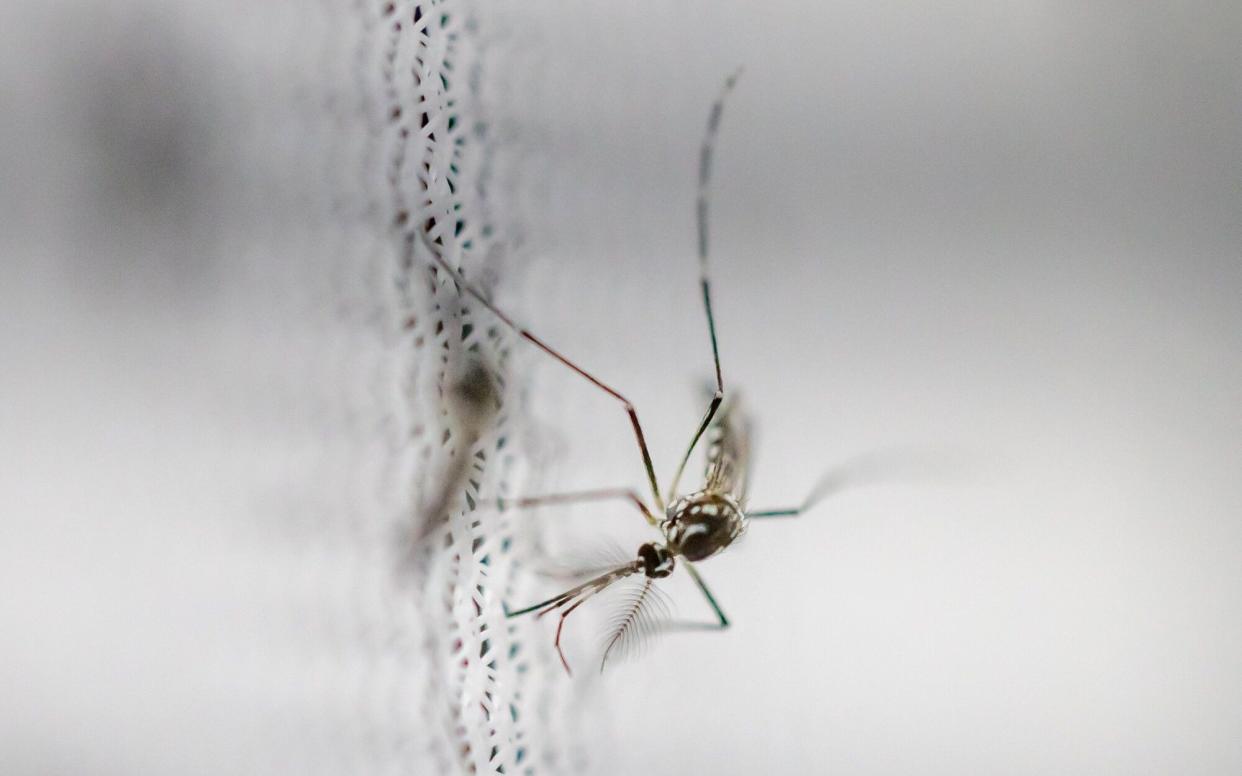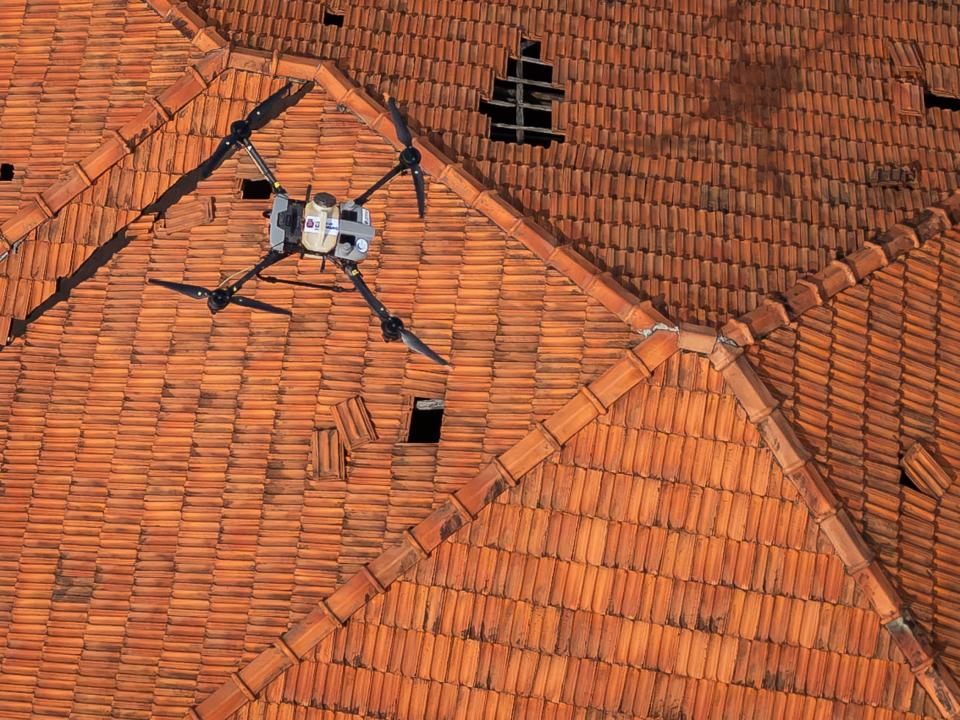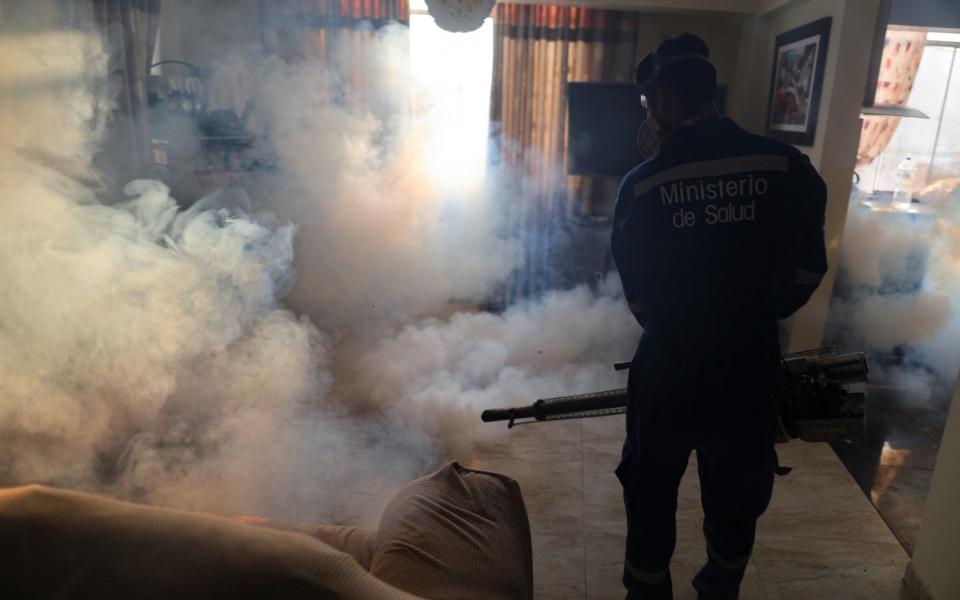Unprecedented outbreak of dengue surges across Brazil

An unprecedented outbreak of dengue fever is surging across Brazil, as the nation battles an epidemic that is straining resources and spreading well beyond the areas traditionally affected.
In cities across the vast country, hospitals and doctors are being stretched to the limit as more than 1.5 million people have already caught the virus – also known as “breakbone fever” – this year.
In Campinas, a city some 275 miles northwest of São Paulo, emergency room doctor Prof André Ribas Freitas said the situation was now “critical”.
“The emergency room is overwhelmed… there are too many patients and so there are long delays for a medical consultation,” he told the Telegraph. “The situation here is much worse [than previous years].”
Thais dos Santos, an advisor at the Pan American Health Organisation (PAHO), said the epidemic was “unique”.
“The way in which the epidemic curve grew early in the year was really concerning, it was growing much more quickly than we normally see,” she said.
The virus, spread by mosquitoes, has already ripped through much of South America and the Caribbean.
Reported cases are close to two million so far this year, making it the seventh worst outbreak since 2000, according data from the PAHO.
In the first two months of this year alone, Peru was forced to declare a health emergency across much of the country, Paraguay registered more than five times the typical number of suspected cases for the period (almost 100,000), and vast swarms of mosquitoes coursed through Argentina.
But it is Brazil which is currently being hit hardest, with South America’s largest nation already reporting 1.5 million cases since January.
The region looks set to surpass the record-breaking epidemic in 2023 – when 4.5 million cases were reported and hospitals were overrun – with epidemiologists expecting the number of dengue cases to more than double the previous record.
Dr Julio Henrique Rosa Croda, doctor and associate professor at the UFMS School of Medicine and Yale School of Public Health, said that some hospitals, mainly based in the capital, are already becoming “overwhelmed.”
“The patients in places like Brasilia are suffering, they wait for six hours to be attended to in the capital of the country and we haven’t even reached the peak of the disease,” said Dr Croda.
Prof Ribas Freitas – Professor of Epidemiology at São Leopoldo Mandic School of Medicine, Campinas – is concerned that the nation’s response is disjointed between federal, state and local authorities, while health officials have left it too late to stem the spread of the Aedes aegypti mosquito, which carries the disease and thrives in cities.
“The control of mosquitoes right now is not too efficient, because they are flying with the virus. The mosquito control is more efficient when you do it before [they hatch], in November, December – to avoid an epidemic even starting.”
A limited vaccination campaign has been launched, but it is unlikely to be enough to halt the outbreak.
Authorities have started to roll out the Qdenga vaccine developed by the Japanese company Takeda, which has an overall efficacy of 61.2 per cent.
Yet Brazil – home to 214 million – has secured only enough doses to vaccinate 3.3 million people this year. To start with, just 521 cities will receive the vaccine, in a campaign targeting 10 and 11 year olds.
Scientists at Brazil’s Butantan Institute in São Paulo are also working on a promising shot, which had an 80 per cent efficacy against symptomatic cases after one dose in a recent trial, but it is unlikely to be ready for widespread distribution until at least 2025.
However, Dr Rafael Galliez, a professor of infectious and parasitic diseases, said he had seen a lot of “hesitancy” for the vaccine, which is administered in two doses with a three month interval.
He explained that people had questioned why they should get a dose in the middle of the epidemic, when it wouldn’t fully protect them.


Meanwhile, the World Mosquito Program has also released mosquitoes infected with the naturally occurring Wolbachia bacteria, which prevents the Aedes aegypti from being able to transmit dengue, in five areas.
The results are promising: Science reported that in Niterói, where Wolbachia has been deployed since 2015, just 58 confirmed cases have been reported this year. Nearby Rio de Janeiro is 14 times bigger, but has seen 161 times more cases, with 9,355 detected since January.
The initiative will be expanded to six new Brazilian cities in the coming months, but scaling up the programme nationwide will be slow.
Complicating matters further is another mosquito-borne disease from the same family of arboviruses: chikungunya.
“There are two epidemics at the same time,” said Prof Ribas Freitas, who is concerned that chikungunya cases are being misdiagnosed in many areas.
“The complications are very different … and if doctors don’t know if a patient has dengue or chikungunya, they can interpret complications incorrectly,” he says. “I think this is a big, big problem right now.”


Historically, dengue cases have been confined to tropical and subtropical regions in Asia, South America and Africa. But climate change means the mosquito that spreads the virus can thrive in new territories – bringing dengue with them.
There are also concerns that outbreaks are becoming larger and longer, fuelled by warming temperatures but also rapid urbanisation.
Major epidemics typically occur cyclically – every three to five years. But while South America and the Caribbean reported more than one million cases only twice in the 10 years between 2000 and 2009, infections have dropped below one million only twice since 2015.
“The larger theme of these arboviral diseases reflects something outside of the scope of the health sector,” says Santos. “Climate change is not only the melting polar cap, it is also having a very tangible impact on health.”
Globally, data on dengue transmission remains patchy, partly because cases are generally mild and can be misdiagnosed. But according to the World Health Organization, some 400 million people are infected with the virus – dubbed ‘breakbone fever’ because severe joint pain can be one of the symptoms – each year, while at least 100 million become ill.
Although the death rate is generally low, the virus exacts a heavy toll on productivity and health systems, with some 500,000 people hospitalised annually and many more experiencing symptoms including fatigue and brain fog that can last for weeks.
Protect yourself and your family by learning more about Global Health Security

